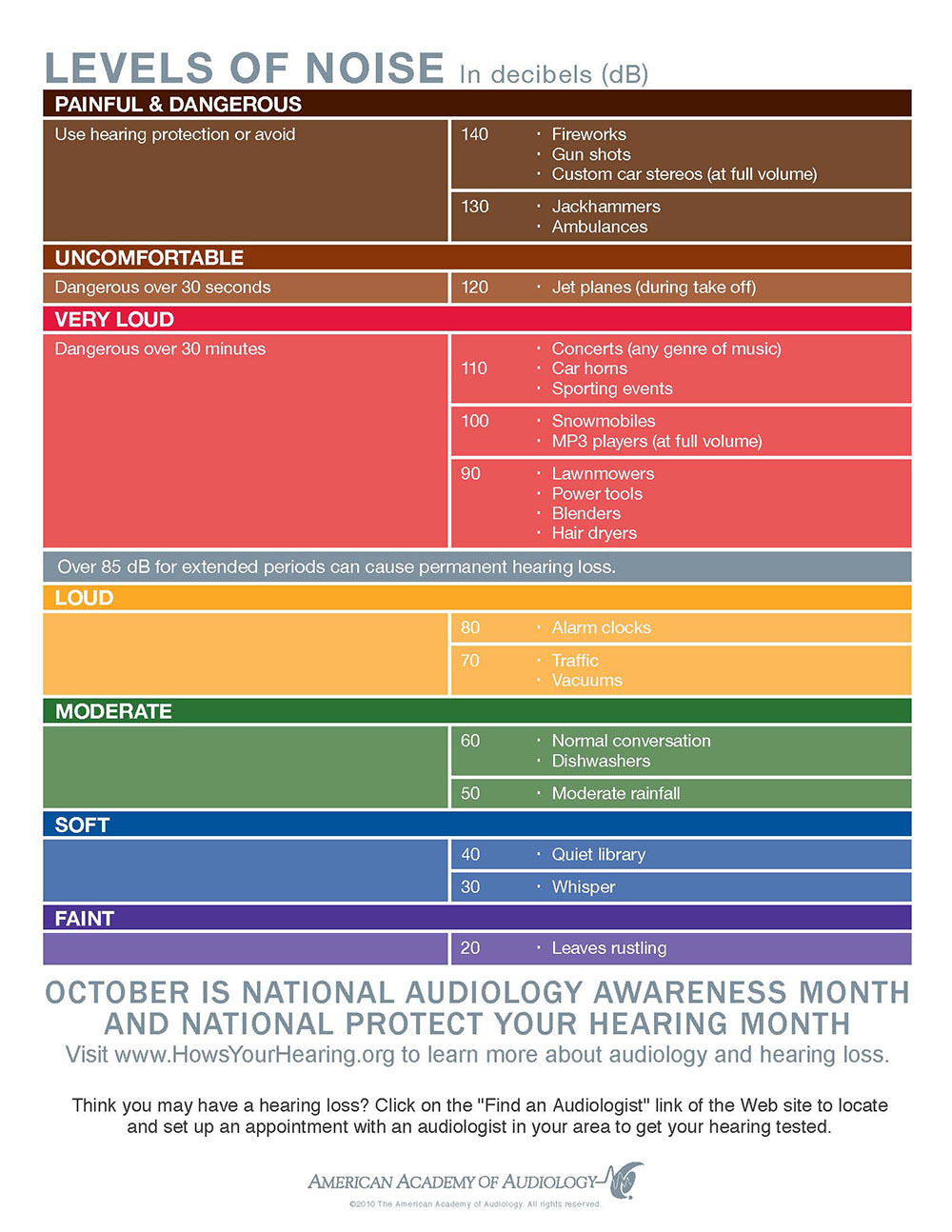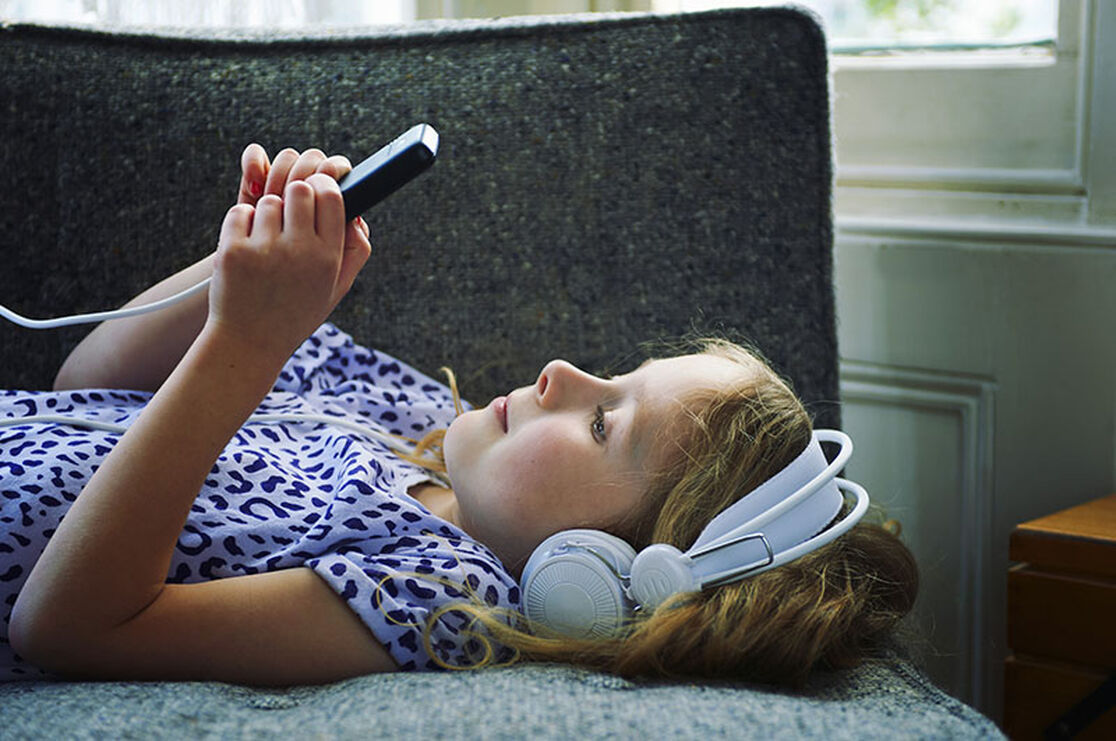October is National Audiology Awareness Month, so today we're sharing some information from our friends at Children's Hospital Los Angeles. Get the quick tips to help protect your family from noise-induced damage.
An estimated five million children between the ages of 6 and 19 have hearing loss resulting from either a one-time exposure to a loud sound or continuous exposure to loud sounds for long periods of time. Noise-induced hearing loss (NIHL) is irreversible, but also preventable.
How do we hear?
Hair cells in the organ of hearing (fun fact: the organ of hearing is shaped like a snail) are responsible for converting sound to an electrical signal so that the hearing nerve can send the sound to the brain. When exposed to loud sounds, these hair cells are damaged and do not grow back.
So, how loud is too loud?
- When your child is wearing headphones, do you find yourself raising your voice so they can hear what you are asking them?
- Does your child complain of ringing in his/her ears even after the noise has stopped?
- Does your child have difficulty hearing or complain of decreased hearing sensitivity after the loud noise has stopped?
- Can you hear (and even more concerning, can you understand the words of) your child’s music when they are using earbuds/headphones?
If you answered YES to any of these questions, then your child may be exposed to sounds that could result in noise-induced hearing loss.
Ways to protect your/your child’s hearing
- Turn the volume down.
- Move away from areas/devices with loud noise.
- Use hearing protection (options include: foam earplugs and/or earmuffs) whenever around excessively loud noise.
Signs of noise-induced hearing loss
- Complaints of ringing in the ears
- Decrease in hearing immediately following exposure to loud noise
- Difficulty hearing in noisy environments
Sounds are measured in decibels (dB), and research shows that sounds at or above 85 dB for extended periods of time require use of hearing protection. For reference, the chart below shows varying sounds and what decibel range they are in. As sounds get louder, the amount of time that is considered “safe” to listen to it becomes shorter.
[caption id="attachment_21037" align="aligncenter" width="1000"] Image courtsey of American Academy of Audiology.[/caption]
Image courtsey of American Academy of Audiology.[/caption]
According to the World Health Organization (WHO), adults should not be exposed to sounds with a peak sound pressure level above 140 dB. For children, the level is reduced to 120 dB. Fireworks can produce up to 170 dB of sound pressure. A “safe” distance for adults is considered to be 50 to 65 feet away from the source of the sound and 165 to 200 feet for children. It is recommended that infants not be exposed to fireworks given that their small ear canals will result in even louder sound pressure levels reaching their organ of hearing. While this is what the WHO recommends, the general (and more conservative) rule of thumb is to sit or stand at least 500 feet away from the fireworks display. This will still allow you, together as a family, to get a good view of the fireworks without having to worry about damage to the organ of hearing. If your viewing location is closer, or if one of your family traditions includes setting off your own fireworks, it is recommended that hearing protection be used. Hearing protection options include foam earplugs and/or protective earmuffs.
Take Home Message
Avoid noises that are too loud, too close or last too long!
~Victoria Mena, Au.D
Victoria is an Audiologist specializing in the diagnosis and treatment for children of all ages with hearing loss and hearing-related concerns. Her scope of practice expands to counseling these patients and their families regarding the implications of hearing loss and intervention options when available. She complete her doctoral work at Vanderbilt University and began working as a pediatric audiologist at CHLA in 2009.
This post is solely for informational purposes. It is not intended nor implied to be a substitute for medical advice. Before undertaking any course of treatment or dietary/health changes, you should seek the advice of your physician or other health care provider.
We aim to provide you with the most honest and credible information possible. This article was reviewed for accuracy by The Honest Team and was written based on sources that are linked at the bottom of the article.
blog_review_statement



